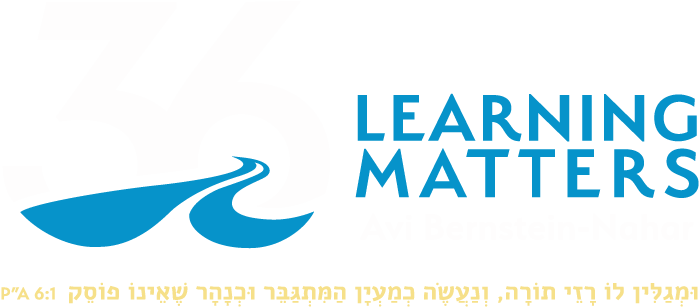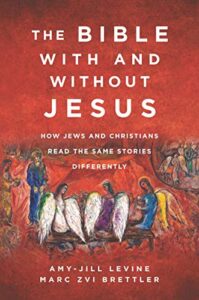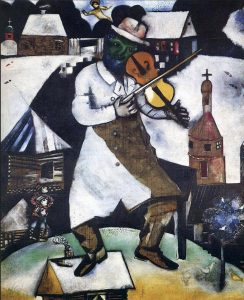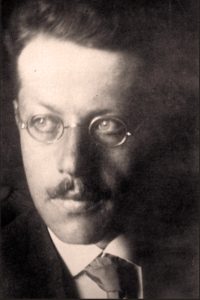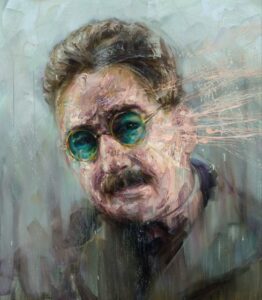Course Offerings
Jewish Thought
The Seventy Faces of Torah: Limmud North America’s 2025 Global Day of Jewish Learning in Newton, MA
Jewish Thought
Magnificent Rebels: Walter Benjamin, Gershom Scholem and Franz Kafka Against the World
This course introduces Walter Benjamin (Berlin, 1892-1940), Gershom Scholem (Berlin, 1897-1982), and Franz Kafka (Prague, 1883-1924) in the context of the spiritual crisis of bourgeois European and Jewish cultures circa 1900. As writers, all three display a clear proclivity for rebellion against the social world given them; only Scholem develops an alternate vision to rival his parents’ generation and lives long enough to put it to the test; a young Kafka succumbs to tuberculosis; a hardly middle-aged Benjamin dies by his own hand. Scholem, by contrast, immigrated to Jerusalem and pioneered the field of Jewish mysticism, along the way cultivating himself as a political dissenter, spiritual gadfly, and literary critic for whom Benjamin and Kafka were his two most important touchstones, bar none. This course will ask what Kafka and Benjamin meant to Scholem, and what Scholem, secular Kabbalist, Zionist critic, and Jewish nationalist, should mean to us.
Jewish Thought
Magnificent Rebels: Buber, Rosenzweig and Scholem Against the Jewish World
This course introduces Martin Buber (Vienna, 1878-1965), Franz Rosenzweig (Kassel, 1886-1929), and Gershom Scholem (Berlin, 1897-1982), each having reinvented themselves during their adolescence and early twenties, eventually becoming preeminent representatives of distinct pathways into and through Jewish life. Buber became a modern-day mystic, biblical humanist, and social revolutionary; Rosenzweig, a path-breaking educator, religious visionary, and enthusiast for observance; and Scholem, a pioneering scholar of Kabbalah, Jewish nationalist, and religious anarchist. Intriguingly, they knew each other well: We will listen in on their conversations, as it were, and decide who is most persuasive.
Many of us, caught off guard by the horrific events in the land of Israel since October 7, 2023, now find ourselves thinking about Zionism. What is Zionism?
For Theodor Herzl, a dominating figure from the time of his appearance at the first Zionist Congress in 1897, Zionism was a movement to secure Jewish control of the land of Israel and, by creating a safe haven there, to save Jews from continued persecution. There was no consensus on this point, however. From Ahad Ha’am’s point of view, efforts to extend Jewish sovereignty over the land of Israel were never the main point and very well might have been a source of harm.
This course tells the dramatic story of ideological clash and personal rivalry between Theodor Herzl and Ahad Ha’am. It will explore the rift it exposed in the Zionist movement and the ensuing schism that continues to ramify in our world to this day.
The two creation stories, Cain and Abel, the Tower of Babel story, Abraham “venturing forth,” the Binding of Isaac, and the Joseph story are among the most iconic stories in all of world literature. Learn not only to appreciate each of them in their magnificence, but also to discern the unity in their message, taken as components of a single Book. The Joseph story, without the Yehudah and Tamar story, is as incomplete as is the Binding of Isaac without the “venturing forth” narrative. As literary critic Robert Alter insists, whether a reader is secular, agnostic or religious, the literary lens brings out more of what the Bible has always offered to its readers, and perhaps new contemporary meanings as well.
The David story may be the greatest single, in-depth character study we have inherited from antiquity, a dramatic revelation of the social, political, and family life of a tragically flawed and deeply impressive founding King of Israel. Is this history or literature, fiction or fact? Scholar Robert Alter, who does not hesitate to compare the author of this story to the likes of Shakespeare, Tolstoy, and Dickens, lifts the veil on this text with his sparkling new English translation that one reviewer called “a literary landmark.” Lust, power, friendship, and a desperate flight from the angel of death—nothing human is omitted in this foundational narrative of the Hebrew Bible.
The Prophets Isaiah and Ezekial and the Book of Palms are among the most theologically charged books in the Bible. Scholars scrutinize their verses for evidence of Israelite history; philosophers dwell on their metaphysical statements. And committed Jews and Christians offer the words of these texts in the course of prayer, as the words of these biblical.books are omnipresent in the liturgy. Thanks to the efforts of Robert Alter, these sacred texts are available to us as never before—in an English translation with scholarly integrity, poetic virtuosity, and a Hebrew form and spirit.
Deuteronomy more than any other book of the Hebrew Bible centers the relationship between Israel and God. Also unique is its status as oratory and interpretation, the beginning of Israel’s love-affair with exposition of its own history. Finally, Deuteronomy represents Israel’s first dalliance with the reform of religious tradition. Whoever wrote down Moses’ exhortations to the people—this person is often referred to as the Deuteronomist—was deeply committed to a covenantal theological perspective. We will take great care in following Alter’s insightful, accessible commentaries and trying to discover both the character of the Deuteronomist as an author and of Moses as a leader.
~ Available also as an explicitly interfaith convening ~
The Book of Samuel is—if you take Spinoza at his word—a treatise on the dangers of concentrating power in the hands of one man, and—if one absolutely must concentrate power in a central authority—a call to its readers to demand that even the supreme leader never be placed above the law as ultimate arbiter of what is fair and just. Many regard the book of Samuel as a founding document of republican government! Come away with skills for reading the Hebrew Bible you never thought you’d have. As a rendering of the particular features of the Hebrew text into English, the translations of Robert Alter and Everett Fox are unrivaled.
Summer Academy
The 2026 Franz Rosenzweig Academy, hosted by the Goethe Institut — Boston
Grapple in a highly collaborative environment with Franz Rosenzweig’s Hegel und der Staat, building German and interpretive skills. As a capstone experience, you will compete in the final week for the most persuasive monologue, designed for the ears of non-specialists, as to whether and in what sense Rosenzweig is, as a philosopher in pursuit knowledge and understanding, in the Tradition of Hermann Cohen. Did Rosenzweig have reason to see himself as the natural successor to Geheimrat Hermann Cohen, as Western European Jewry’s leading philosophical theologian? How does the evidence of the recently translated and much admired book, Hegel and the State, contribute to our judgment in this respect?
Alasdair MacIntyre has insisted, echoing the Gorgias, that if you want to engage “in rational enquiry through the method of dialectic” you will need to “possess and recognize certain moral virtues without which the cooperative progress of dialectic will be impossible.” Chief among these are dispositions to listen, to befriend and to love dialectic, understood as a process by which one expands one’s knowledge and understanding, and improves one’s practices. We will definitely aim to cultivate these dispositions in the course of our time together and draw on our shared commitment to them as we seek to benefit all participants’ projects, and ultimately perfect our collaborative inquiry.
